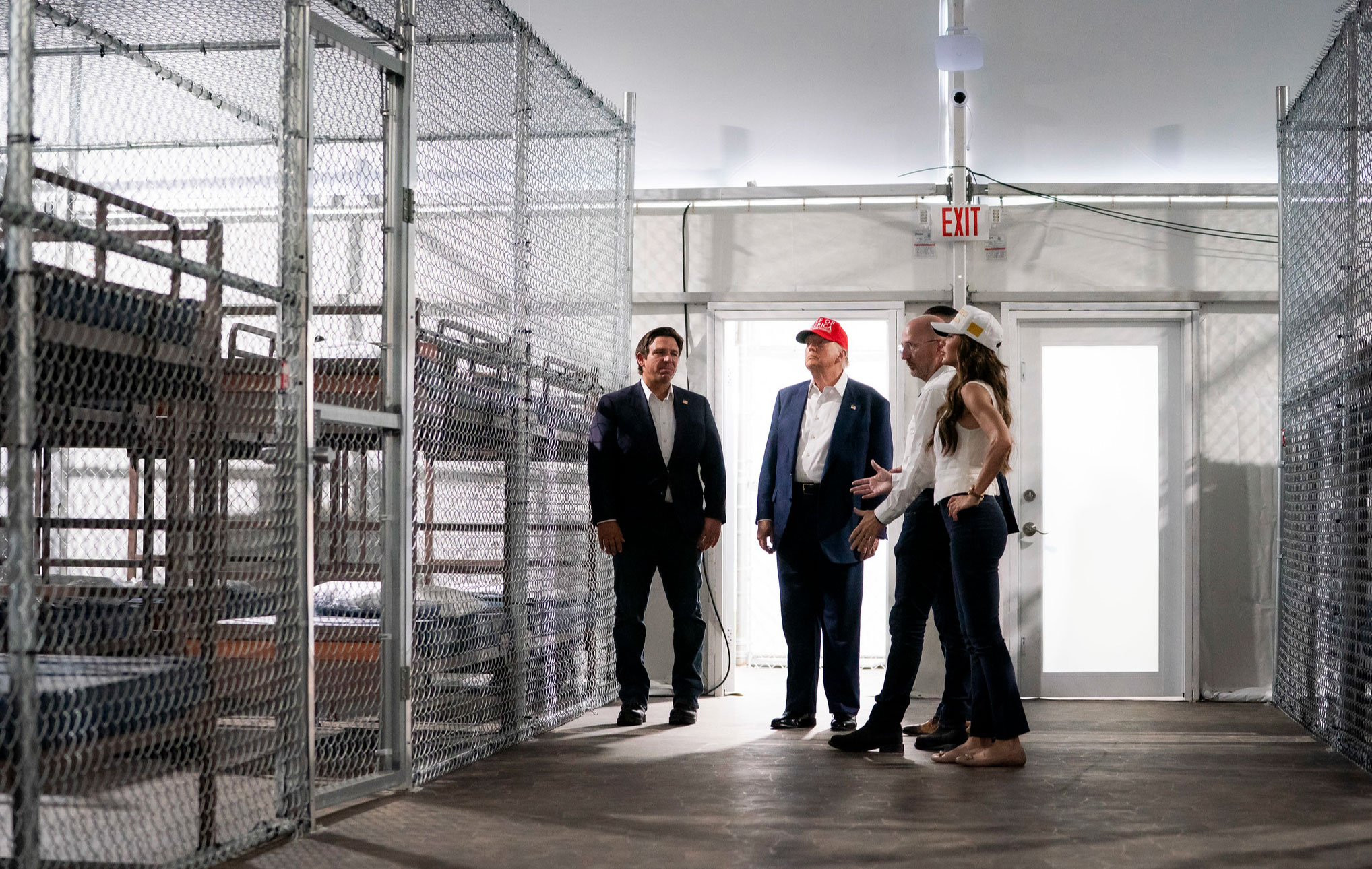Trump speculates about injecting disinfectants to treat COVID-19
During a briefing in which the White House pitched "emerging" research on the benefits of sunlight and humidity in diminishing the threat of the coronavirus, President Trump wondered aloud about the possibility of injecting disinfectants into patients. Mr. Trump remarked at Thursday's White House briefing that he's seen that disinfectant "knocks it (COVID-19) out in a minute. And is there a way you can do something like that by injection inside or almost a cleaning? As you see, it gets in the lungs and it does a tremendous number on the lungs -- so it'll be interesting to check that. ... It sounds interesting to me."
But William Bryan, head of science and technology at the Department of Homeland Security, seemed to shoot the idea down as quickly as it was mentioned, saying it wasn't being considered. When a reporter asked Bryan, "There's no scenario that could be injected into a person, is there?" Bryan replied, "No."
Asked about his comment again on Friday, Mr. Trump said, "I was asking a question sarcastically to reporters like you just to see what would happen."
The idea of using disinfectant products in that way met with quick rebuke from the medical community.
"Just because something works outside of the body doesn't mean you should bring it inside the body, where it could potentially cause severe damage," CBS News chief medical correspondent Dr. Jon LaPook explained on "CBS This Morning" Friday. He added, "The last thing you want is somebody hearing this, hearing this kind of a statement, and then — being very ill themselves, and saying, 'You know what, I'm gonna just give it a try.'"
Dr. Robert Glatter, an emergency physician at Lenox Hill Hospital in New York City, said in an emailed statement, "It would be incredibly dangerous to inject any chemicals or sanitizers to treat coronavirus. There is absolutely no merit or any medical evidence to suggest this in any way."
John Balmes, a pulmonologist at Zuckerberg San Francisco General Hospital, stressed to Bloomberg News that, "Inhaling chlorine bleach would be absolutely the worst thing for the lungs. The airway and lungs are not made to be exposed to even an aerosol of disinfectant."
Kashif Mahmood, a doctor in Charleston, West Virginia, said on Twitter, "As a physician, I can't recommend injecting disinfectant into the lungs or using UV radiation inside the body to treat Covid-19. Don't take medical advice from Trump."
RB, the manufacturer of Lysol, issued a statement stressing that injecting disinfectants would be unsafe, saying:
"Due to recent speculation and social media activity, RB (the makers of Lysol and Dettol) has been asked whether internal administration of disinfectants may be appropriate for investigation or use as a treatment for coronavirus (SARS-CoV-2). We must be clear that under no circumstance should our disinfectant products be administered into the human body (through injection, ingestion or any other route)."
The EPA also stressed that disinfectant products should be used for cleaning household surfaces, not the human body. "When using an EPA-registered disinfectant, follow the label directions for safe, effective use," the agency says. It released an updated statement Thursday that included this advice:
"Never apply the product to yourself or others. Do not ingest disinfectant products. This includes never applying any product on List N (the agency's list of disinfectants to use against SARS-CoV-2, the virus that causes COVID-19) directly to food."
As for heat and humidity, past studies haven't found good evidence that the warmer temperatures and higher humidity of spring and summer will help tamp down the spread of the virus. But Bryan said there are "emerging results" from new research that suggest solar light has a powerful effect in killing the virus on surfaces and in the air. He said scientists have seen a similar effect from higher temperatures and humidity. A biocontainment lab in Maryland has been conducting testing on the virus since February, Bryan said.
"The virus is dying at a much more rapid pace just from exposure to higher temperatures and just from exposure to humidity," Bryan said.
He said knowing more about it could help governors when making decisions about how and when to open their state economies. However, he emphasized that the emerging results of the light and heat studies don't replace social distancing recommendations.
Mr. Trump, who has consistently looked for hopeful news about containing the virus, was asked if it was dangerous to make people think they would be safe by going outside in the heat, considering that so many people have died in Florida.
"I hope people enjoy the sun. And if it has an impact, that's great," Mr. Trump replied, adding, "It's just a suggestion from a brilliant lab by a very, very smart, perhaps brilliant man."
"I'm here to present ideas, because we want ideas to get rid of this thing. And if heat is good, and if sunlight is good, that's a great thing as far as I'm concerned," the president said.
Mr. Trump has often talked up prospects for new therapies and offered rosy timelines for the development of a vaccine.
Earlier in the month, scientific advisers told the White House there's no good evidence yet that the heat and humidity of summer will rein in the virus without continued public health measures.



